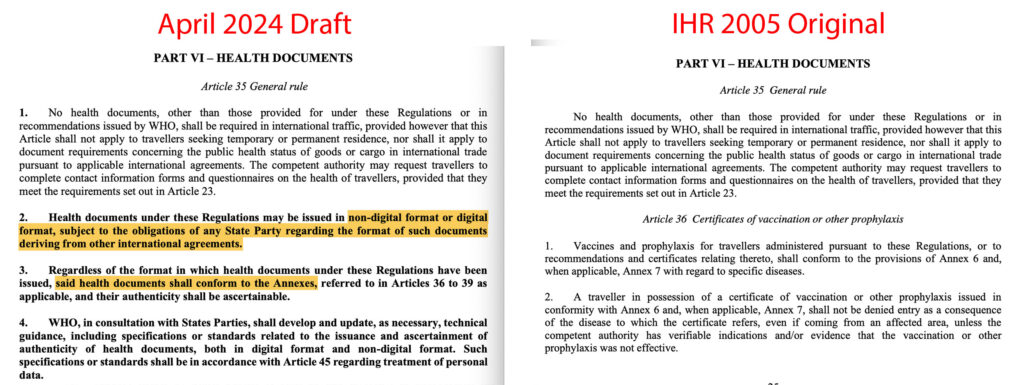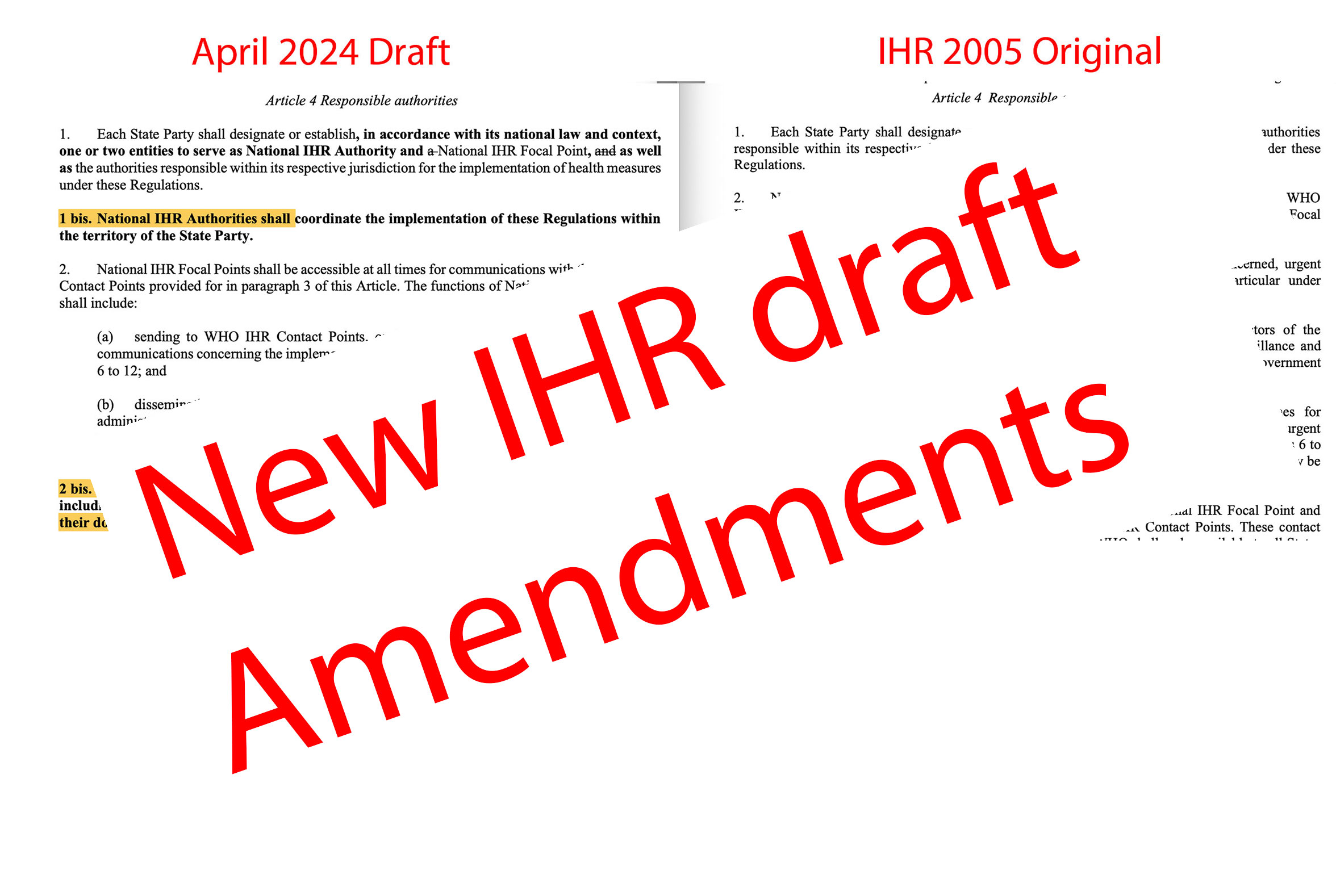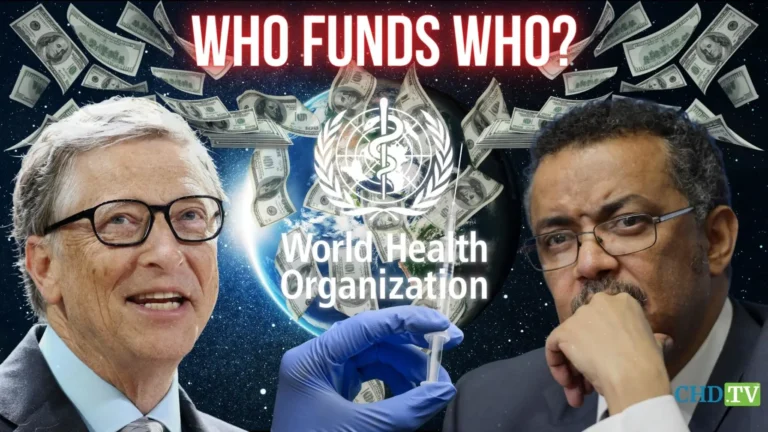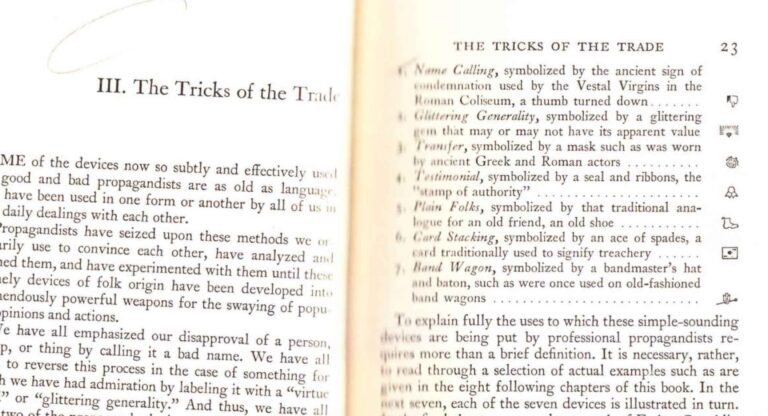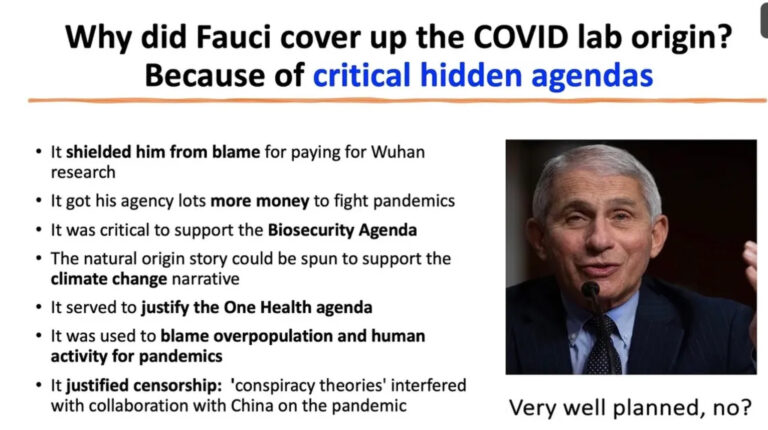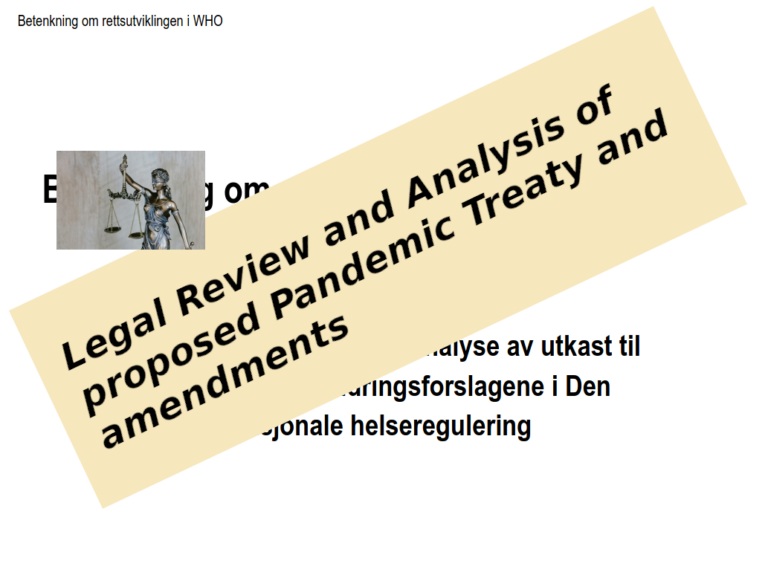The 300+ amendments proposed last year have been whittled down to something readable, yet still problematic.
The 8th meeting of the Working Group on the International Health Regulations (WGIHR) is happening this week. Their task has been to harmonize the 300+ proposed amendments to the International Health Regulations (IHR) 2005. These were first released in February 2023 to shock and dismay in the international community. They included items such as a strike through in “non-binding” and “with full respect for the dignity, human rights, and fundamental freedoms of persons.”
More than a year went by before an unofficial draft was leaked in February 2024.
Today, a working draft, dated April 17 2024, is being circulated. It appears to be a real working draft and is hosted on the WHO website.
Primary Concerns & understanding how the document works:
Rather than compare the April 17 2024 draft to prior draft amendments, let’s compare it to the standing IHR 2005 – current international law. In the US, the IHR 2005 has been further reinforced into domestic legislation through the NDAA 2023.
Binding versus Non-binding:
The IHR 2005, and this new draft, maintain the definition of recommendations being “non-binding.” However, a substantive change is the new definition of the National IHR Authority. This entity coordinates implementation of the IHR within the individual country.
Article 4 shows how this becomes binding (see the “shall” words? Go read the NDAA 2023.)

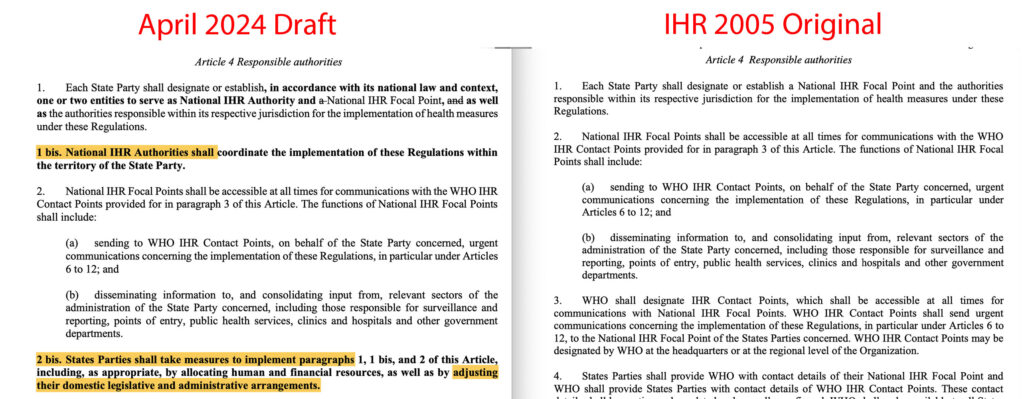
Human Rights
Human rights has been paired with equity.

Potential vs Actual Health Emergencies
The new language for potential pandemics is covered by “pandemic emergencies”, below:
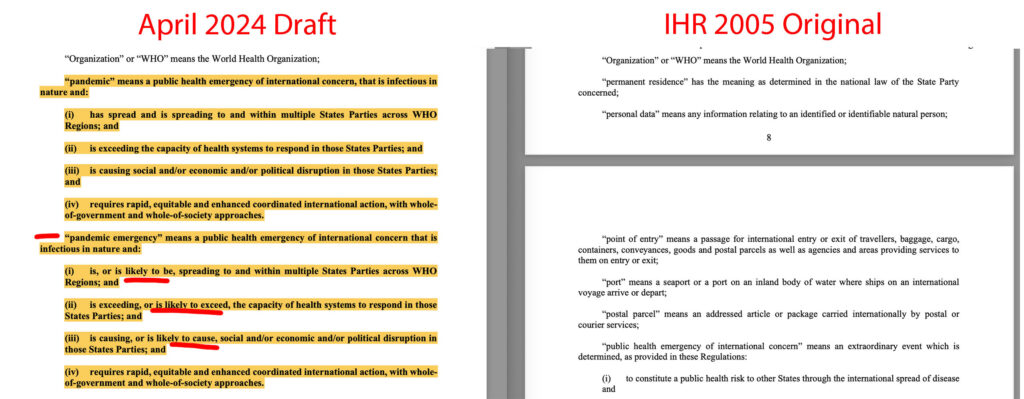
Article 12 allows “pandemic emergencies” (i.e. potential pandemics) to be determined by the Director General.

And Article 13 provides that the WHO shall coordinate the pandemic response, whether in a Pandemic or “pandemic emergency”:

Censorship of misinformation; Surveillance
These items, problematic and illegal in some western countries, have been moved to Annex 1. Each state party “shall” develop these capacities both at the Intermediate and National Level.
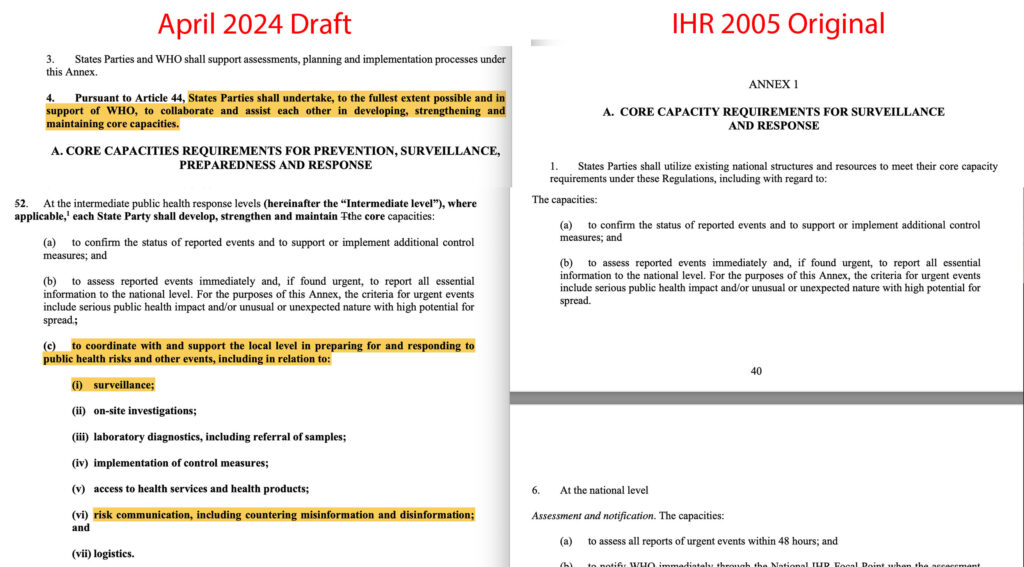
Digital ID
Article 35 has been updated planning for digital health documents. So has Annex 6.
